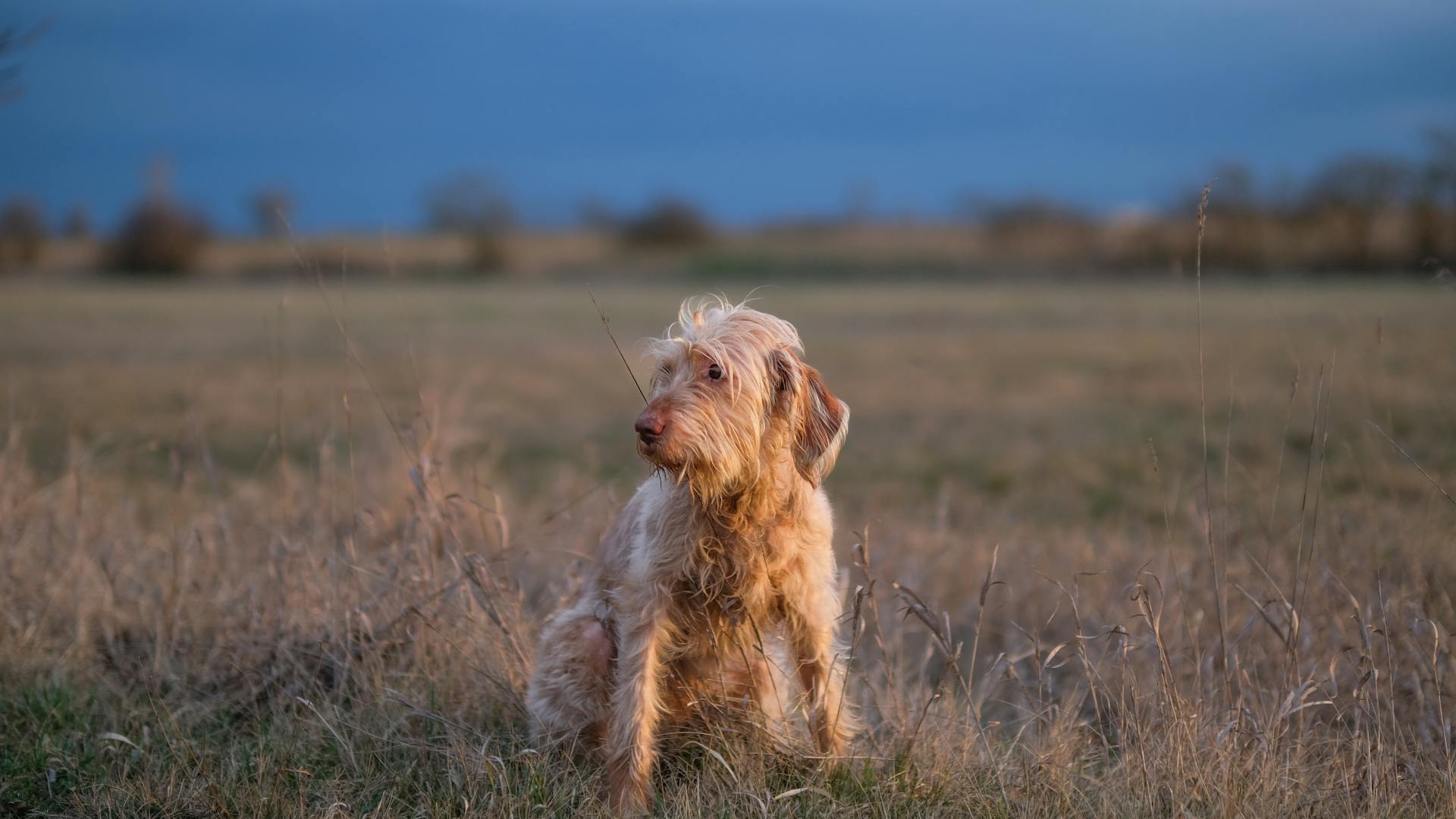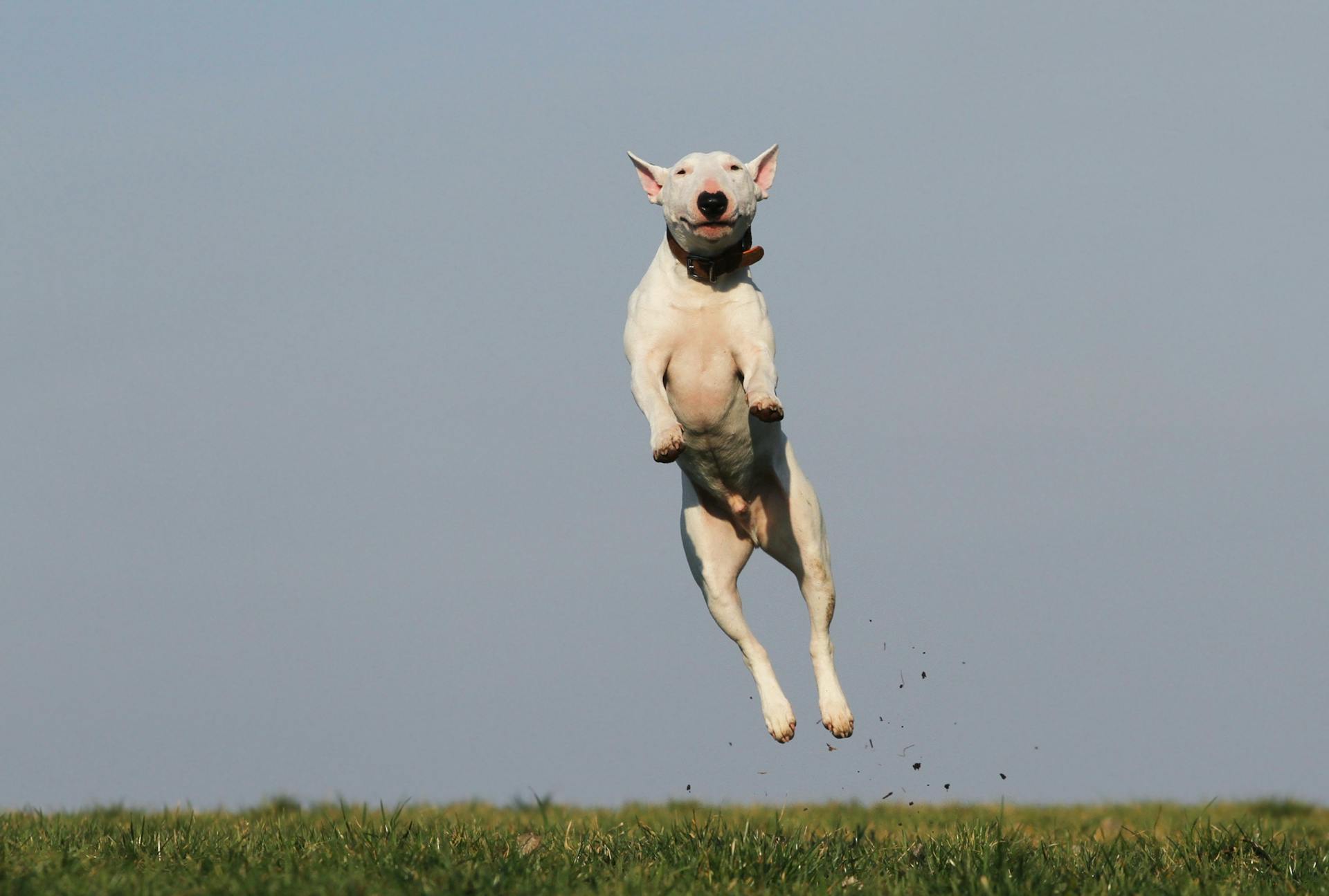
A Cane Corso's appetite is a crucial aspect of their overall health, and understanding their feeding needs is essential for any responsible owner.
Cane Corsos are a relatively lean breed, with a mature weight range of 90-120 pounds for males and 80-110 pounds for females.
Feeding a Cane Corso puppy requires a nutrient-rich diet to support their rapid growth and development.
A Cane Corso's daily caloric needs vary depending on their age, size, and activity level, with puppies requiring more calories than adult dogs.
To ensure your Cane Corso is getting the nutrients they need, consult with your veterinarian to determine the best feeding schedule and amount for your dog.
Factors Influencing Food Intake
Cane Corsos are prone to overeating due to their large size and high energy levels, which can lead to obesity and other health issues if not managed properly.
Their age plays a significant role in determining their food intake, as puppies need more calories than adult dogs to support their growth and development.
A Cane Corso's weight also affects their food intake, with heavier dogs requiring more calories to maintain their weight.
Their activity level is another factor to consider, as more active dogs need more calories to support their energy needs.
Cane Corsos with a higher metabolism burn calories more efficiently, which can impact their food intake.
You might enjoy: How Much Food Should a Havanese Eat per Day
Adjusting Feeding
To adjust the feeding amount of your Cane Corso, you'll need to consider their activity level. For highly active dogs, multiply the calculated RER by a factor of 1.6-2.0.
Monitoring your dog's weight and body condition is vital for their health, allowing you to detect early signs of obesity or weight loss and make timely adjustments to their diet.
You can use a feeding chart, like the one provided, to estimate the daily feed amount for your Cane Corso based on their weight. For example, a Cane Corso weighing between 41kg-54kg requires 820g-1080g of food per day.
To adjust the feeding amount, do so gradually over a few days to avoid upsetting your dog's digestive system. Sudden changes can have negative effects.
Be flexible and willing to adapt the feeding amount to suit your Cane Corso's individual needs, as various factors can change their nutritional requirements over time.
Monitoring and Adjusting
Monitoring and adjusting your Cane Corso's food intake is crucial for their health and well-being. Regularly assessing their weight and body condition can help detect early signs of obesity or weight loss.
For instance, if your Cane Corso is gaining or losing weight, adjust the food amount to maintain an ideal weight. This can be done by monitoring their weight and body condition regularly, just like in Example 4.
A highly active Cane Corso may require more calories than a less active one. To calculate their caloric needs, multiply their RER by a factor of 1.6-2.0 for highly active dogs, or 1.2-1.4 for less active dogs.
Explore further: How Much Food Should a 50 Lb English Bulldog Eat
Here's a rough guide to help you adjust their feeding amount:
Pay attention to your Cane Corso's hunger and eating cues, as they can indicate whether they're getting too little or too much food. If they seem constantly hungry or are leaving food, adjust the portion size accordingly.
Expert Advice
To get a handle on your Cane Corso's eating habits, it's essential to consult with a veterinarian. They can provide a personalized feeding plan tailored to your dog's unique needs.
The vet will consider your dog's age, which is a crucial factor in determining their dietary requirements. Puppies, for instance, need more frequent feedings than adult dogs.
A veterinarian can also assess your dog's health and metabolism to recommend the right food and portion sizes. This is especially important for Cane Corsos, as they can be prone to certain health issues.
Your vet will likely ask about your dog's lifestyle, including their activity level and whether they're a working dog or a couch potato. This information will help them create a feeding plan that meets your dog's energy needs.
Weight Management
Maintaining an ideal weight is crucial for your Cane Corso's overall health and well-being. Regularly assess your dog's weight and body condition to ensure they're not gaining or losing weight.
Your dog's diet plays a significant role in weight management. A diet consisting of biologically appropriate ingredients will naturally help your dog shed excess pounds or gain healthy weight. A balanced ratio of quality protein, healthy fats, ground bone, offal, and vegetables packed with vitamins and minerals is essential for optimum health and performance.
The amount of food your Cane Corso needs depends on several factors, including their metabolism, the quality of their food, exercise level, weight, age, breed, and whether you want them to gain, maintain, or lose weight.
To ensure you're feeding your Cane Corso correctly, consider the following factors:
- Metabolism
- Food quality
- Exercise level
- Weight
- Age and breed
- Weight management goals
If you're using a raw feeding recipe or a specific dog food brand, be sure to check the correct feeding quantities using a calculator or the manufacturer's guidelines.
Sources
- https://k9obedienceunleashed.com/how-much-should-a-cane-corso-eat-a-day/
- https://www.prodograw.com/raw-feeding-guide/cane-corso-feeding-guide/
- https://www.borrowmydoggy.com/doggypedia/dog-breed-guides-cane-corso
- https://www.canecorso.co.nz/breed-information/caring-for-your-cane-corso/
- https://www.sanroccocanecorso.com/best-dog-foods-cane-corsos-wysong-epigen-review/
Featured Images: pexels.com


